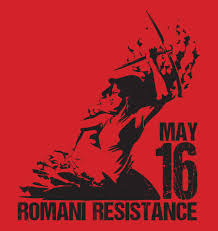The Roma – a different story
 Roma, a widely dispersed group of people living in most of the European countries. Infamous for the majority, forgotten by the institutions, and neglected in the decision-making processes. A people with no kin state who fought for the establishment of many of today’s nation-states. According to many sources, including opinion polls, reports, media outlets, and education systems in Europe, Roma or ‘Gypsies’ [sic] are shown as modern segregated pagans, societies’ villains, marginalized and exotic leftovers in most of the European countries. They are vulnerable barbarians, shown either as parasites or as fond of criminality, and should be kept mute and powerless. Altogether, this series of despicable arguments show that Roma are a poor socio-economic unit living on the edge of society. But hold on a second, IS THIS REALLY THE TRUTH?
Roma, a widely dispersed group of people living in most of the European countries. Infamous for the majority, forgotten by the institutions, and neglected in the decision-making processes. A people with no kin state who fought for the establishment of many of today’s nation-states. According to many sources, including opinion polls, reports, media outlets, and education systems in Europe, Roma or ‘Gypsies’ [sic] are shown as modern segregated pagans, societies’ villains, marginalized and exotic leftovers in most of the European countries. They are vulnerable barbarians, shown either as parasites or as fond of criminality, and should be kept mute and powerless. Altogether, this series of despicable arguments show that Roma are a poor socio-economic unit living on the edge of society. But hold on a second, IS THIS REALLY THE TRUTH?
Recently, Roma have become a topic for extensive research and, with contribution from a variety of angles. Generally, research depicts Roma in both a positive and negative light. A big chunk of the research with negative connotations reinforces the above-mentioned stereotypes through surveys conducted in ghettos, media generalizations and other marketing tools – all mechanisms to perpetuate the humiliating image of Roma. Meanwhile, a small proportion of research papers show Roma as a political unit, a nation engaged in struggle, as people who aim to progress towards a better life, or as contributors to the socio-economic development of society.
There is a reason why most of the sources of information and research are full of stereotypes and prejudices – the lack of recognition of the political project that represents Roma people, and the lack of political representation of Roma people.
At the first World Romani Congress in 1971, which took place in Orpington (South East of London), Roma people held their first ever nation-building meeting, seeking common values and interests that would unify them. The main motivation of this congress was the trauma of the ‘Samudaripen’ (Roma Genocide) that happened during the Second World War. The congress was led by Roma prominent figures from most of the European nation states and still acts as a milestone for the idea of a Roma Nation. It brought with it the claim for a common self-identification and recognition through the name of ‘Roma’, which means ‘man, human being’ in Romani language. In this way, Roma people declined to be identified with the pejorative ‘Gypsy’, a name given by the majority of the European nation states for a group of people that until then had had nothing in common. The participants at the first World Roma congress also adopted a common flag and anthem. Since then, there have been seven subsequent World Roma congresses, each strengthening Roma identity, culture, and a common sense of belonging. These three main elements of nation-building – a non-territorial nation; a political unit; and an anthem and flag – have remained the most important and have unified Roma people’s struggle, development, and progress.
In spite of this, Roma are still identified as a socio-economic group without any values and interests by the majority population, by the media and by a series of research papers that ignore the realities of this nation-building process. We continue to be called ‘Gypsies’ and the recognition of Roma as a nation has been woefully inadequate.
This ignorance has hindered the possibilities for achieving equality and has rendered the struggle of Roma invisible. In a context where we preach European values and equality for all, Roma are always shown as the scapegoats of policy failures, criminality and illegal immigration. Roma are not the stereotypes you were led to believe, but contributors to society who are often neglected. History does not teach the struggles of Roma and neglects to each our history to young people.
One of the recently established and most important days of remembrance that should be vocally celebrated is May 16, Romani Resistance Day. On this day in 1944, Nazi policy makers decided that many Roma inmates should be exterminated in the gas chambers of concentration camps. On that day, the Roma inmates in Auschwitz II-Birkenau’s Zigeunerlager showed unity in resisting their captors. However, in the eyes of those in the majority population who are ignorant of our history, ‘Gypsies’ deserved that fate.
When we imagine Roma, we only consider the ‘Gypsies’, the results of the opinion polls, the research and media depictions reinforcing the stereotypes that Roma are poor nomads, beggars or robbers. Roma were never given an opportunity to prove that they are something other than these labels. We generally do not consider the existence of Roma such as that famous pioneer of comedy Charlie Chaplin; or the remarkable football superstar Ricardo Quaresma; the king of Rock and Roll, Elvis Presley; or Brazilian president Juscelino Kubitschek de Oliveira.
Thus, recognition of Roma as a nation is hindered and silenced in most European countries. One way to overcome this situation is to truly embrace equality, freedom and justice. We should understand the notion of equality as a principle regardless of nationality, ethnicity, religion, gender and other existing cleavages. Equality as well as freedom and justice should be understood as existing for everybody; these values should not be owned and bestowed by one group of people to another.
Another way would be for Roma to create their own story. If they did so, I would not expect Roma to believe the discourse that they are born as outlaws and social deviants.
Furthermore, I strongly believe that Roma can improve the situation only if the old and the new generations collaborate on the same agenda. Young Roma activists and academics such as those who established the blog Romalitico can be among the most effective challengers of negative narratives to prove that Roma are not what you are told but a non-territorial nation that deserves respect. Indeed, it is up to the upcoming generations to use their energy with the existing innovative democratic tools to debunk stereotypes with the help of the elders. However, this can only be successful if the new generations consult the elders for their wisdom and experiences on the Roma struggle for recognition; while our elders make way for the youth and empower them for a better future.
Suad Skenderi is an executive director and author of the academic medium Romalitico. He is currently working on a Masters degree in Political Sciences with the Central European University.




Awesome site you have here but I was wanting to know if you
knew of any discussion boards that cover the same topics discussed in this article?
I’d really like to be a part of community where I can get advice from other knowledgeable people that share the same interest.
If you have any suggestions, please let me know.
Kudos!
This is for regards to say their own story and the reality of what happens for the rromani people in EU